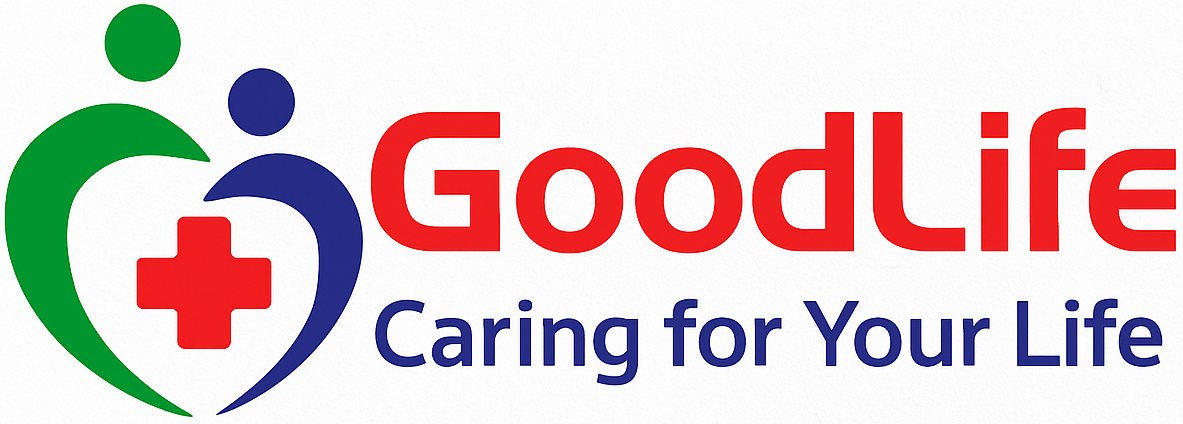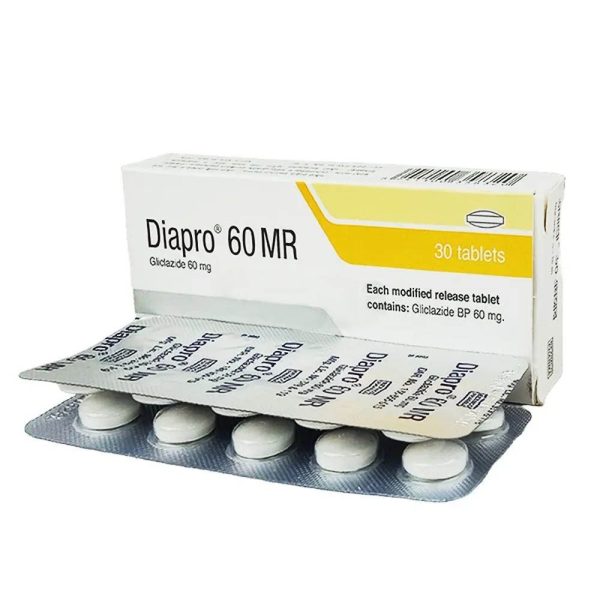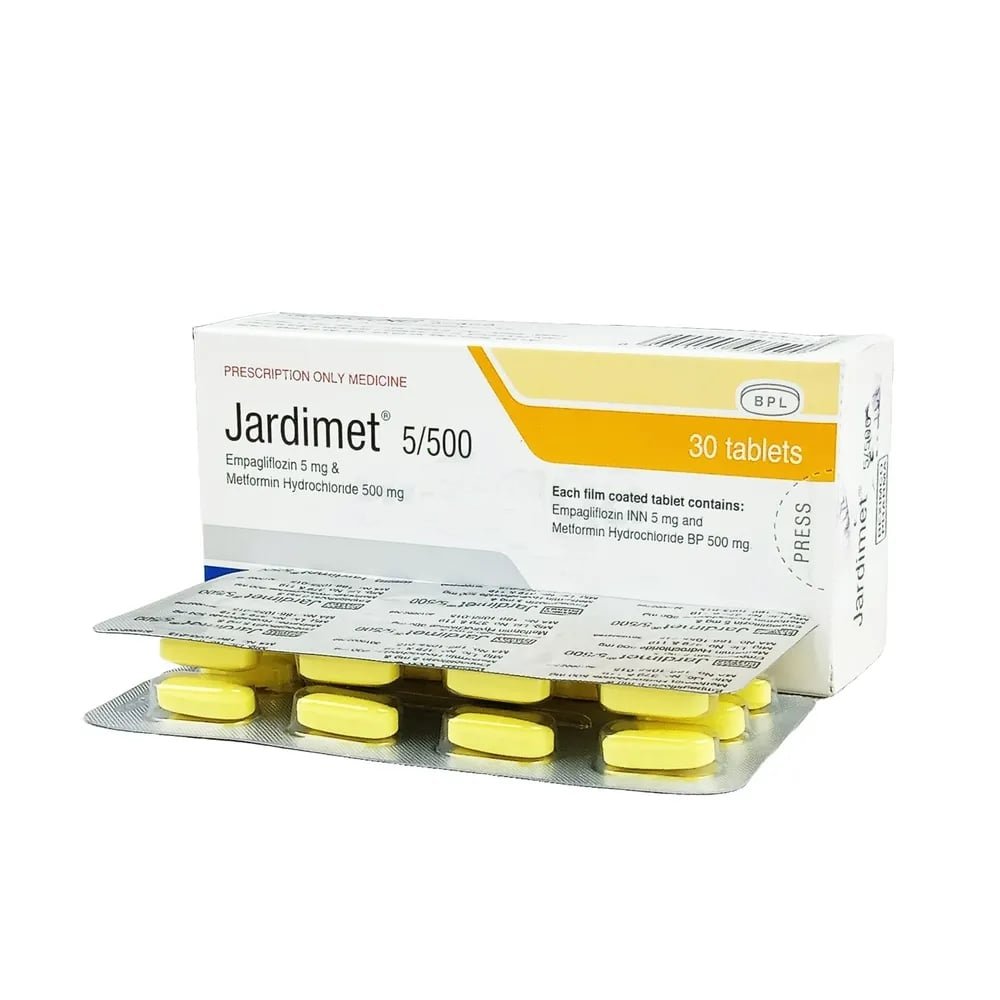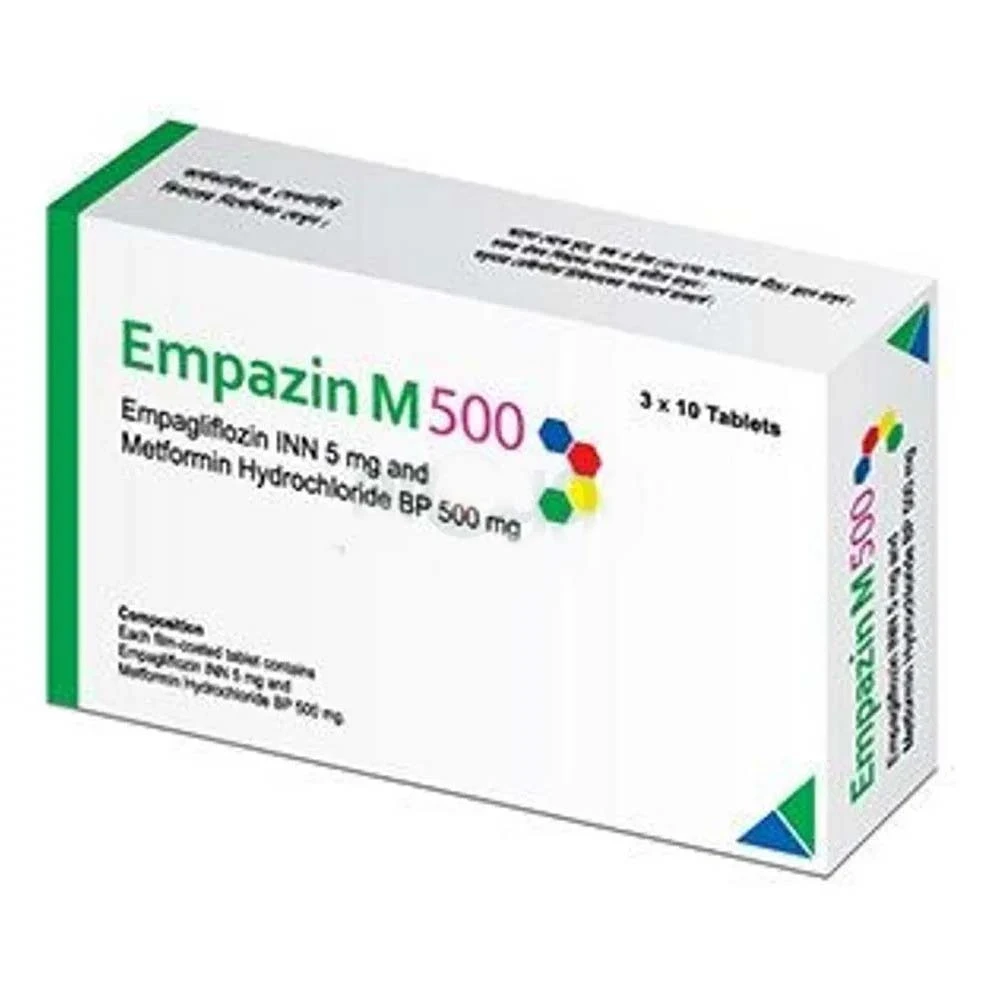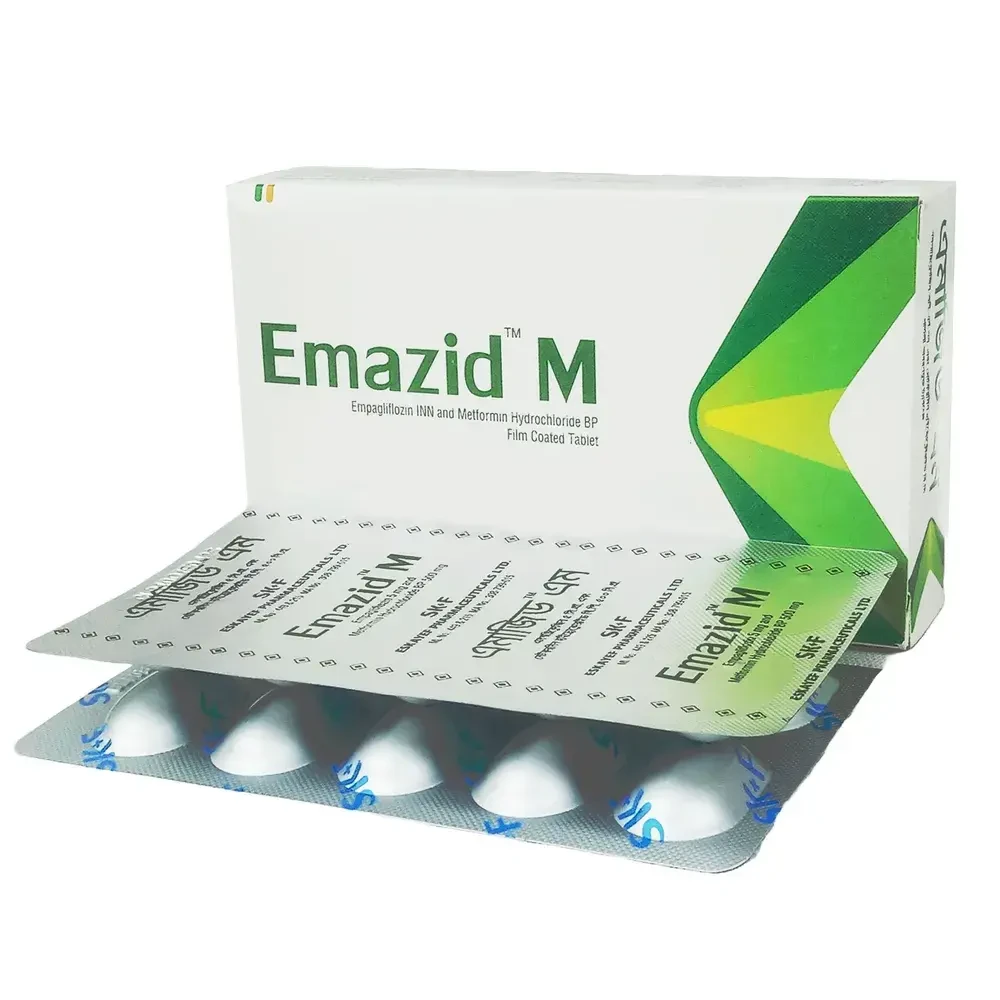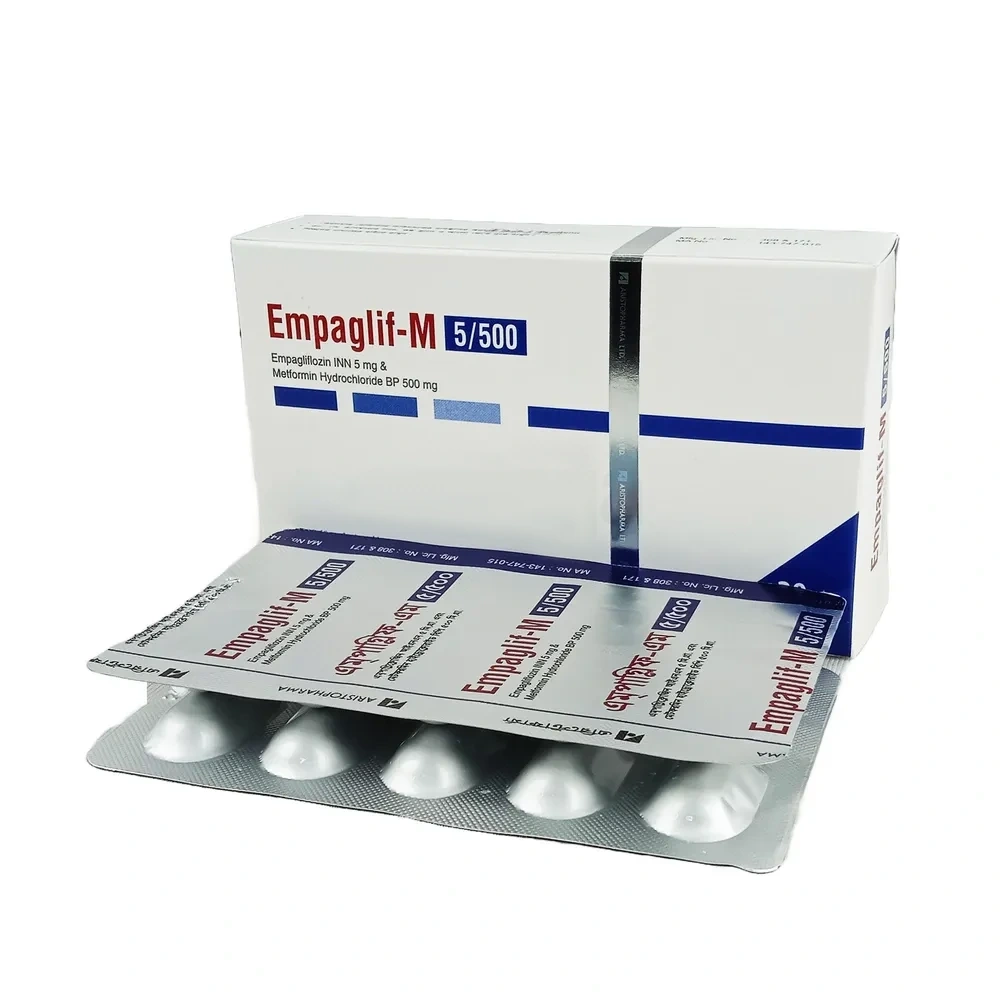Medicine Overview of Jardimet 500 5mg+500mg Tablet
- Nausea
- Vomiting
- Diarrhea
- Headaches
- Dizziness
- Fatigue
- Abdominal pain
- Increased urination
- Weight loss
The dose can be gradually increased to a maximum of 25 mg of empagliflozin and 2,000 mg of metformin hydrochloride per day.
•Type 1 diabetes
•Diabetic ketoacidosis (DKA)
•Severe kidney disease (eGFR < 30 mL/min/1.73 m2)
•Severe liver disease
•Heart failure
•Active bladder infection
•Recent surgery or major trauma
•Hypersensitivity to empagliflozin or metformin hydrochloride History of lactic acidosis.
• History of urinary tract infections or genital yeast infections
•Risk of dehydration
•Elderly patients
• Type 1 diabetes.
• Diabetic ketoacidosis
• Severe kidney disease
• Severe liver diseases
• Heart failure.
• Active bladder infection.
• Recent surgery or significant trauma
• Diabetic ketoacidosis (DKA)
• Lactic acidosis
• Hypoglycemia (low blood sugar)
• Dehydration
• Urinary tract infections
• Female genital mycotic infections
• urticaria, dysuria
• Vaginal moniliasisia
Common side effects :
• Increased urination
• Thirst
• Dry mouth
• Nausea
• Vomiting
• Diarrhea
• Abdominal pain
• Headache
• Dizziness
• Fatigue
• Weight loss
It is s not recommended for use during pregnancy due to potential risk to a fetus especially during the second and third trimesters.
Lactation:
Empagliflozin is excreted in breast milk and may be harmful to the nursing infant. Metformin hydrochloride is also excreted in breast milk, but it is unclear whether it can harm a nursing infant.
It may interact with other medications, including:
•Insulin: Empagliflozin + metformin hydrochloride can increase the risk of hypoglycemia (low blood sugar) when used with insulin.
•Sulfonylureas: Empagliflozin + metformin hydrochloride can also increase the risk of hypoglycemia when used with sulfonylureas, another type of medication used to treat type 2 diabetes.
•Meglitinides: Empagliflozin + metformin hydrochloride can also increase the risk of hypoglycemia when used with meglitinides, another type of medication used to treat type 2 diabetes.
•Thiazolidinediones: Empagliflozin + metformin hydrochloride may increase the risk of heart failure when used with thiazolidinediones, another type of medication used to treat type 2 diabetes.
•Alpha-glucosidase inhibitors: Empagliflozin + metformin hydrochloride may decrease the effectiveness of alpha-glucosidase inhibitors, another type of medication used to treat type 2 diabetes.
•Beta-blockers: Empagliflozin + metformin hydrochloride may mask the symptoms of hypoglycemia, such as increased heart rate and sweating, when used with beta-blockers.
•ACE inhibitors: Empagliflozin + metformin hydrochloride may increase the risk of hypotension (low blood pressure) when used with ACE inhibitors.
•ARBs: Empagliflozin + metformin hydrochloride may increase the risk of hypotension when used with ARBs.
•Diuretics: Empagliflozin + metformin hydrochloride may increase the risk of dehydration when used with diuretics.
•Steroids: Empagliflozin + metformin hydrochloride may increase the risk of hyperglycemia (high blood sugar) when used with steroids.
•Thyroid hormones: Empagliflozin + metformin hydrochloride may increase the risk of hypoglycemia when used with thyroid hormones.
Store below 30°C temperature, protected from light & moisture. Keep out of the reach of children.
